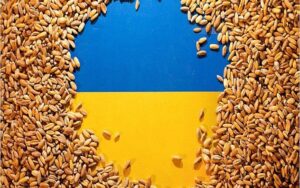
Pope Francis was buried in the Basilica of Santa Maria Maggiore in Rome, the Vatican said. The closed ceremony lasted about half an hour.
“The funeral rites were conducted in accordance with the Ordo Exsequiarum Romani Pontificis, presided over by the Cardinal Camerlengo, in the presence of those indicated in the relevant communication from the Office for Liturgical Celebrations and the relatives of the late Pope, and concluded at 1:30 p.m.,” the Vatican said in a statement.
After the farewell ceremony, a nine-day period of mourning begins.
During this time, cardinals from around the world arrive in the Vatican to participate in the conclave, a closed meeting at which a new Pope is elected.
It is noted that for the first time in more than a century, the Pope was buried outside the Vatican, and his funeral was a private event, allowing those closest to him to pay their respects.

Indian military officials said Pakistani troops fired on Indian posts along the Line of Control in disputed Kashmir for the second time in a night, the Associated Press reported on Saturday.
According to a statement from the Indian Army, soldiers from several Pakistani army posts opened fire on Indian positions “across the Line of Control.”
Indian troops responded with small arms fire. The statement said the firing was ‘unprovoked,’ but no information on casualties was provided.
Tensions between India and Pakistan have escalated after a deadly attack on Indian tourists in Kashmir on Tuesday, when a terrorist attack killed about 30 people, most of whom were Indian citizens.
India called the attack a “terrorist attack” and accused Pakistan of supporting the attackers. The Indian Express, citing sources, reported that seven attackers were behind the attack, at least four of whom were from Pakistan.
Pakistan, in turn, denied any involvement, and an unknown militant group called the “Kashmir Resistance” claimed responsibility for the attack.
In response to the escalation of the conflict, India suspended an important agreement on the joint use of water resources and closed the only functioning land border crossing point.
Pakistan, in turn, canceled visas for Indian citizens and closed its airspace to Indian airlines.

The National Bank of Ukraine (NBU) has improved its forecast for the electricity deficit in Ukraine this year from 4% to 3% and next year from 2% to 1% thanks to rapid repairs and the development of distributed generation.
“Quick repairs to maneuverable generation and energy infrastructure, the development of distributed electricity generation and renewable energy capacity, against the backdrop of sustained electricity imports, allow us to improve the estimate of the electricity deficit over the forecast horizon,” the NBU stated in its Inflation Report for April 2025, comparing it with the January report.
According to Nabank, the deficit will almost disappear in 2027 (1%).
Thus, the report states that the impact of energy supply constraints on real GDP growth will decrease, and annual electricity imports in 2025-2027 will amount to about $0.5 billion.
As reported, at the end of 2024, the Ministry of Energy reported that the total capacity of distributed gas generation facilities connected in Ukraine last year amounted to 967 MW, of which 835 MW were commissioned in 2024.

39 years since the Chernobyl disaster
On April 26, 1986, at 1:23 a.m. Kyiv time, the fourth power unit of the Chernobyl Nuclear Power Plant (ChNPP) suffered the worst man-made disaster in human history. As a result of a failed experiment to test safety systems, a reactor explosion occurred, leading to a massive release of radioactive substances into the atmosphere.
How the accident happened
The experiment on the fourth power unit was conducted to test the operation of the turbine generator in the event of a loss of external power supply. Due to a series of violations of instructions, design errors, and incorrect actions by personnel, the reactor lost stability, causing a thermal explosion and subsequent fire.
The first firefighters and plant workers who arrived at the scene of the accident were exposed to powerful radioactive radiation, often without adequate protection.
The scale of the disaster
In the first days after the accident, a radioactive cloud covered Ukraine, Belarus, and Russia, and then spread throughout Europe.
Approximately 116,000 people were urgently evacuated from Pripyat and the 30-kilometer exclusion zone.
Subsequently, another 220,000 people were resettled from contaminated areas.
According to experts, radioactive emissions from Chernobyl were dozens of times higher than the atomic bombs dropped on Hiroshima and Nagasaki.
Consequences of the disaster
Human casualties:
Immediately after the accident, about 30 people died from acute radiation sickness and injuries.
According to long-term forecasts, the effects of radiation have led to an increase in thyroid disease, cancer, and cardiovascular disease in tens of thousands of people.
Environmental consequences:
For decades, the exclusion zone remained extremely dangerous for habitation.
Some areas still have high levels of radiation contamination today.
Economic consequences:
The USSR suffered enormous economic losses estimated at billions of dollars.
Reconstruction work, the construction of a sarcophagus over the destroyed reactor, and the resettlement of the population all placed a heavy burden on the economy.
Global consequences
Rethinking security policy: After Chernobyl, nuclear power plant safety standards were revised around the world.
Intensification of the anti-nuclear movement: European countries began to develop programs to phase out nuclear energy or tighten controls over it.
Increased international cooperation: the disaster highlighted the need for global coordination in the event of nuclear accidents. New international agreements on nuclear safety were established.

The presidents of Ukraine and the United States, Volodymyr Zelensky and Donald Trump, held a productive meeting in Rome, Politico reports, citing a White House representative.
“President Trump and President Zelensky met privately today and had a very productive discussion,“ White House Communications Director Stephen Chung said.
“More details about the meeting will be provided later,” he said.
The presidents arrived in Rome for the funeral of Pope Francis. Ukrainian presidential spokesman Sergei Nikiforov announced the meeting between Zelensky and Trump before the start of the funeral ceremony.
According to media reports, the US and Ukrainian presidents may continue talks after the funeral of Pope Francis.

As of April 25, Ukraine had exported 34.74 million tons of grains and legumes since the beginning of the 2024-2025 marketing year (July-June), of which 1.916 million tons were shipped since the beginning of the current month, according to the press service of the Ministry of Agrarian Policy and Food, citing information from the State Customs Service.
According to the report, as of April 25 last year, total shipments amounted to 40.289 million tons.
At the same time, since the beginning of the current season, 13.714 million tons of wheat (15.404 million tons in 2023/2024 MY) have been exported, 2.258 million tons of barley (2.178 million tons), 10.8 thousand tons of rye (1.2 thousand tons), and 18.252 million tons of corn (22.231 million tons). (1.2 thousand tons), and corn – 18.252 million tons (22.231 million tons).
Total exports of Ukrainian flour since the beginning of the season as of April 25 are estimated at 58 thousand tons (in 2023/24 MY – 85.7 thousand tons), including wheat flour – 53.8 thousand tons (81 thousand tons).